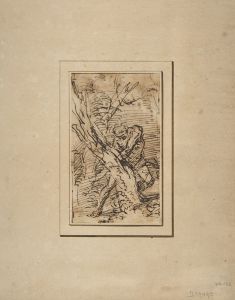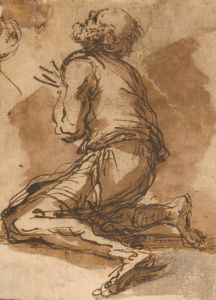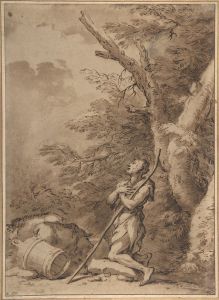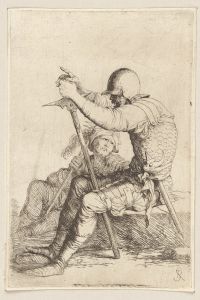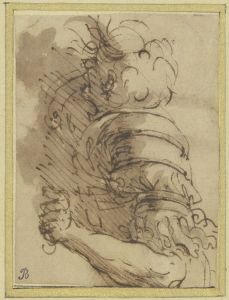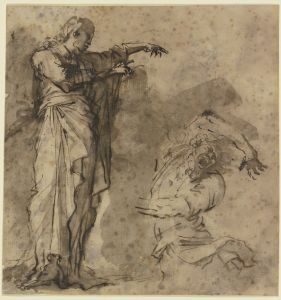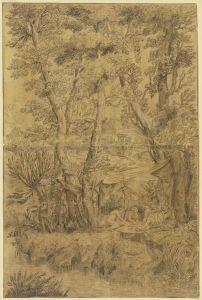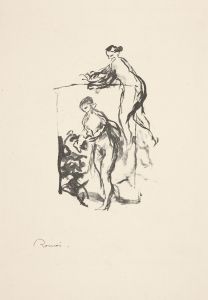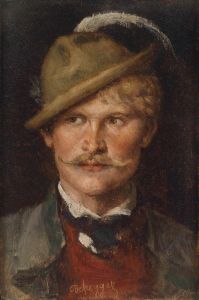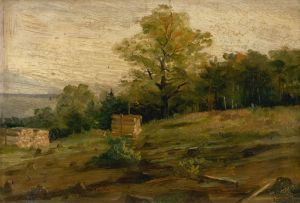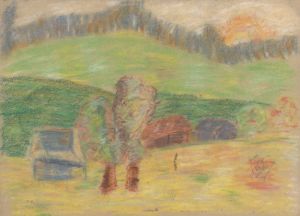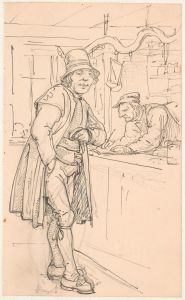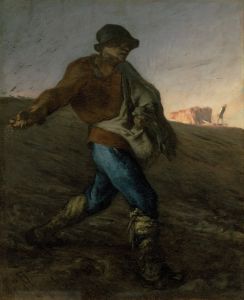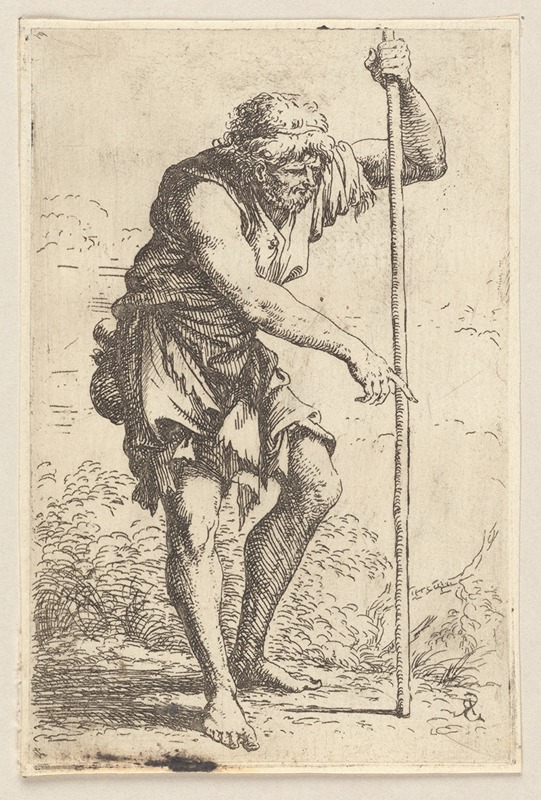
Peasant with Staff
A hand-painted replica of Salvator Rosa’s masterpiece Peasant with Staff, meticulously crafted by professional artists to capture the true essence of the original. Each piece is created with museum-quality canvas and rare mineral pigments, carefully painted by experienced artists with delicate brushstrokes and rich, layered colors to perfectly recreate the texture of the original artwork. Unlike machine-printed reproductions, this hand-painted version brings the painting to life, infused with the artist’s emotions and skill in every stroke. Whether for personal collection or home decoration, it instantly elevates the artistic atmosphere of any space.
"Peasant with Staff" is a painting by the Italian Baroque artist Salvator Rosa, known for his diverse talents as a painter, poet, and printmaker. Rosa was born in 1615 in Arenella, near Naples, and became one of the most unconventional artists of the 17th century. He is often associated with the Neapolitan school of painting and is recognized for his dramatic and romantic landscapes, as well as his depictions of bandits, soldiers, and peasants.
The painting "Peasant with Staff" exemplifies Rosa's interest in portraying figures from the lower social strata, a theme that was relatively uncommon in the art of his time, which often focused on religious, mythological, or aristocratic subjects. This work is characterized by its realistic depiction of a peasant, capturing the rugged and humble nature of rural life. The subject is portrayed with a staff, which could symbolize his role as a shepherd or a traveler, common occupations among peasants during that era.
Rosa's style is marked by a dramatic use of light and shadow, a technique known as chiaroscuro, which he employed to give his figures a sense of volume and presence. In "Peasant with Staff," this technique is used to highlight the textures of the peasant's clothing and the contours of his face, lending the figure a lifelike quality. The painting's somber palette and the peasant's contemplative expression reflect Rosa's interest in capturing the emotional depth and dignity of his subjects, regardless of their social standing.
Salvator Rosa's work often carried a sense of rebellion against the artistic norms of his time. He was known for his independent spirit and his disdain for the conventions of the academic art world. This is reflected in his choice of subject matter and his approach to painting, which often emphasized the wild and untamed aspects of nature and humanity. Rosa's paintings, including "Peasant with Staff," can be seen as a precursor to the Romantic movement, which would emerge in the late 18th and early 19th centuries.
While specific details about the provenance and current location of "Peasant with Staff" are not widely documented, Rosa's works are held in numerous prestigious collections around the world, including the Louvre in Paris, the National Gallery in London, and the Metropolitan Museum of Art in New York. His paintings continue to be studied and admired for their technical skill, emotional depth, and the unique perspective they offer on the society of his time.
Salvator Rosa's legacy as an artist is marked by his ability to transcend the traditional boundaries of Baroque art, infusing his works with a sense of individuality and a focus on the human condition. "Peasant with Staff" remains a testament to his skill in capturing the essence of his subjects, providing a window into the life and times of 17th-century Italy.





